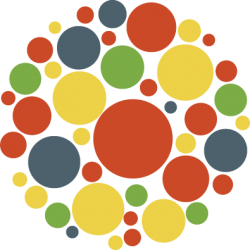To improve and promote accessible library and information services to persons with a visual impairment or any other print disability
Lack of access to information is the biggest barrier for persons with a print disability to fully and effectively participate in all aspects of society.
The United Nations Convention on the Rights of Persons with Disabilities (esp. art. 9, 21 and 24) states that print disabled people have the right to equal access to books, knowledge and information at the same time, cost and quality as everyone else.
There are over 161 million blind and partially sighted people in the world and this number is growing. There are even more people with other print disabilities who cannot effectively read print because of a physical, perceptual, developmental, cognitive, or learning disability. Together this makes up a very large number of people who cannot read a conventional book, magazine or website. Less than 5% of all published materials and reportedly less than 20% of websites are accessible to this target group.
Libraries are a community’s ‘portal’ to information, knowledge and leisure, and their services need to be made accessible for all. Content and technology providers are essential partners in developing these inclusive information and leisure reading services. They should do so by making good use of the emerging possibilities of digitised publishing and delivery.
Statements
The International Federation of Library Associations and Institutions (IFLA) promotes the right of people with a print disability to equitable access to all library and information services and supports international and territorial legislation that fights disability discrimination
- IFLA recommends that all library and information providers, as part of their core services, put in place services, collections, equipment and facilities, which will assist individual users with a print disability to access and use resources that meet their particular needs for information.
- IFLA encourages library and information service providers to consult individuals with a disability, and groups representing them, in the planning, development and ongoing delivery of services.
- IFLA acknowledges that the best services are provided by professionals who are aware of the needs of, and service options for, people with a print disability. Therefore IFLA encourages all library and information services to ensure that staff are adequately trained and available to work with users with a print disability, and supports career-long professional development and formal library and information studies programs, which will facilitate the strengthening of equitable library and information services to people with a print disability.
- IFLA supports efforts to improve access to resources by people with a print disability through service agreements, referrals and sharing of resources between library and information services; and between these and other organisations specialising in services targeted for people with a print disability.
Therefore IFLA encourages the establishment and development of an international network of libraries of accessible materials.
- IFLA supports efforts to ensure that copyright legislation enables equal access by people with a print disability to information from all libraries and information providers
- In addition to meeting legislative requirements, IFLA encourages the observation of universal design principles, guidelines and standards to ensure that library and information services, collections, technologies, equipment and facilities meet the identified needs of users with a print disability.
Implementing
To promote the implementation of the statements in this document, IFLA encourages:
- Decision makers at international, national and local levels to continuously develop and execute action plans for library and information services to persons with a print disability
- Decision makers at international, national and local levels to include in their action plans mechanisms for (self) monitoring the progress made on the implementation
- All funding bodies to adequately resource library and information services for persons with a print disability
Endorsed by the IFLA Governing Board April 2012
